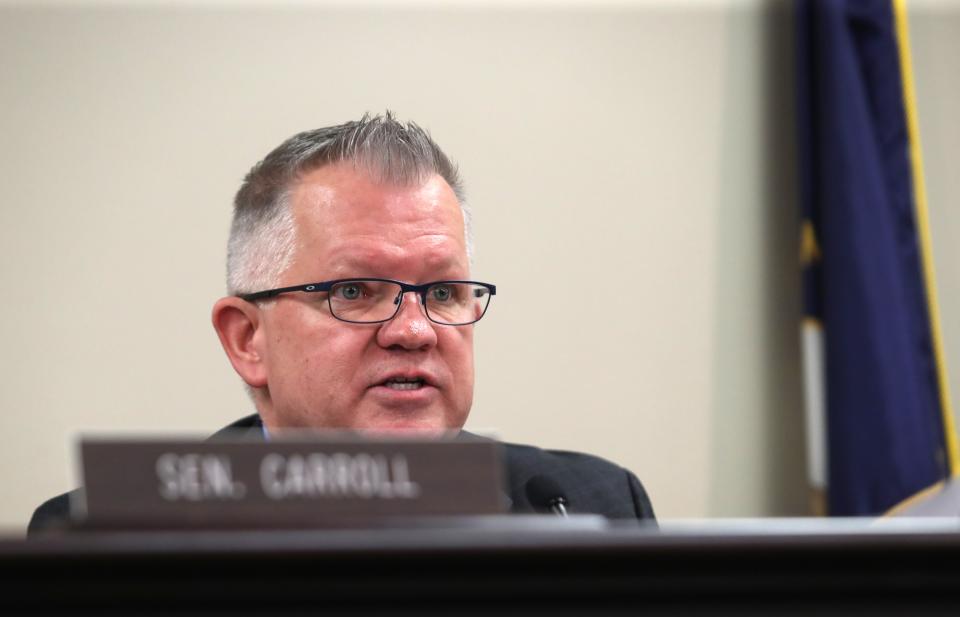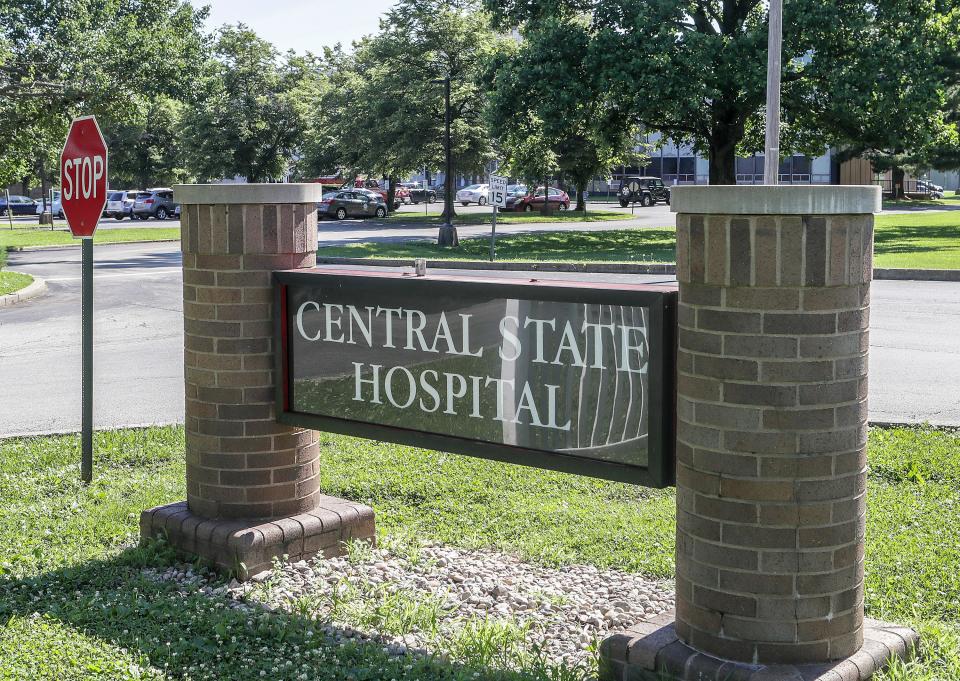Senator unveils $165M upgrade of juvenile detention system, including Louisville expansion
After an audit released in late January offered a closer look at issues plaguing Kentucky's Department of Juvenile Justice, state Sen. Danny Carroll told the chamber to expect a bill soon aimed at addressing those problems.
Carroll, a Benton Republican and chair of the Senate Families and Children Committee, unveiled that legislation Tuesday morning. The amended Senate Bill 242 puts millions in state funds toward transitioning the department back to a regional model, where most children in custody are kept at facilities close to their homes, while building several new facilities, including a 16-bed complex at Louisville's Central State Hospital for "high acuity" youths most in need of services.
The investment isn't cheap. The cost of renovating existing facilities, building the new complex in Louisville and constructing two new detention facilities for girls is about $165 million, Carroll noted.
“This comes with a price tag, and as the budget moves forward we have some decisions to make on this," he told committee members.

The bill had been in the works before state Auditor Allison Ball released a scathing audit by CGL Management Group was in late January.
That report broke down ongoing problems within the juvenile justice department's eight statewide detention centers, including excessive use of isolation as a punitive measure, frequent use of force, problems with youth education and consequences of a 2022 decision to pivot from regional detention centers to splitting up youths between low- and high-security facilities.
Gov. Andy Beshear at the time criticized portions of the audit as a "political tool," as some GOP lawmakers were critical of him and the state's executive branch. Ball said a "lack of leadership" in the governor's office had led to many of the issues, which had previously been outlined in a separate 2017 review.
Representatives for Beshear did not immediately respond to a request for comment about the new bill.
The new legislation includes a plan to shift back to a regional model, a provision included in a bill passed in 2023 to reinstate that system. It also sets aside money to build two new facilities for girls — one in the Lexington area, the other in Western Kentucky, with the option to build more centers as needed — and for splitting up violent youths from those who have been nonviolent.
It would also establish a system to ensure kids end up in the facility that meets their needs, with options such as inpatient psychiatric facilities, a pediatric teaching hospital or the planned high acuity center, for juveniles dealing with severe issues who could be violent toward themselves or others — "the highest level kids we deal with," Carroll said.

Treatment of those children has been a concern for years, highlighted in January by a lawsuit alleging kids at the Adair County Youth Detention Center, the site of a high-profile riot in 2022, have been mistreated and kept in disturbing conditions.
Carroll's proposal, which was not voted on at Tuesday's committee meeting but will likely be taken up again next week, is a collaboration between the Cabinet for Health and Family Services, the Justice and Public Safety Cabinet, the Administrative Office of the Courts and the Kentucky Hospital Association, as each group plays a role in juvenile detention.
Keith Jackson, interim justice cabinet secretary, and Eric Friedlander, CFHS secretary, both spoke in favor of the bill.
“This is a complex issue," Friedlander told committee members. "You would think, ‘We’re supposed to take care of kids, it shouldn’t be that complex.’ But it ends up being really complex between the courts, between the DJJ, between the cabinets, between the hospital association, providers — so many different perspectives on how to do this well and how to do this right.”
Reporter Rebecca Grapevine contributed. Reach Lucas Aulbach at [email protected].
This article originally appeared on Louisville Courier Journal: Kentucky juvenile justice system at center of new Senate Bill 242
